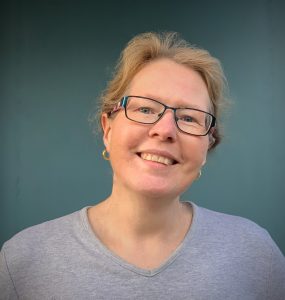
Dr Judith Tsouvalis
j.j.tsouvalis@lancaster.ac.uk
Additional links
Lancaster University profile
Google Scholar profile
I am a geographer and science and technologies studies (STS) scholar interested in the changing interrelations between science, technology, people and the natural world. To understand how material, physical, and biological processes are intertwined with socio-cultural and political ones I draw inspiration from ‘more-than-human’ modes of inquiry that are informed by concepts and approaches from STS, multispecies geographies, anthropology, process philosophy and new materialism. My research has encompassed work on remaking public participation and democracy from a relational, constructivist STS perspective; the challenges of policy co-design; the ‘digital divide’ and its impacts on participatory democracy; science, expertise, and their role in depoliticizing matters of public concern; more-than-humans in ‘human’ affairs; and the driving forces and transformative effects of large-scale systems transformations.
I am committed to experimental, collaborative, interdisciplinary, transdisciplinary and inclusive research practices. I have closely collaborated with Government civil servants and policymakers and was invited to sit on two UK Government Expert Panels: the Department for Environment, Food and Rural Affairs/Natural England’s joint expert panel on “Social science evidence for improving agri-environment outcomes – the co-design of England’s post-Brexit agri-environmental policy” (2018-2022) and the Environment Agency’s “Science Task Group for the Bassenthwaite and Windermere Restoration Program” (2008-2010). I am part of the AHRC-funded Design and Policy Research Network and the Ecosystems Knowledge Network.
My role on the project
I am a Senior Research Associate on the DigiAge project and am the Lead on the production of the “Roadmap to Inclusion” report which will be informed by findings from research undertaken by different team members, the case studies, and the Elder Innovation Lab. I will also be involved in providing policy guidelines, formulating design principles, and writing a responsible innovation checklist for designing digital technologies that are inclusive of older adults. My empirical research will focus on how older adults are constructed in the Sociotechnical Imaginaries (STIs) of digital futures advocates, including the Government, digi tech companies, the NHS, charities (such as Age Concern), and others with high stakes in this field. I am interested in finding out how these STIs figure in the co-production of social orders, social identities, institutions, representations and discourses around digital futures. Another strand of my research is concerned with how more-than-humans figure in the large-scale systems transformation towards the digitalization of society and how ‘things’, quasi-objects and hybrids co-produce this new socio-technical order.
Why I wanted to join the team
I became interested in digital equity through my work as a Research Fellow on a three-year project led by the University of Sheffield (“Post-Brexit Agri-Environmental Governance: the Co-Production of Policy Frameworks”, 2019-2022). This project focused on the Government’s approach to co-designing England’s new Environmental Land Management (ELM) approach with farmers and agri-environmental stakeholders and entailed looking at “harder to reach” stakeholders in ELM co-design, specifically farmers. One significant stumbling block to participatory policymaking we discovered was digital equity. Our study revealed that rural communities in general, and older farmers in particular, are negatively impacted by the “digital divide” between rural and urban areas. This divide not only hampers rural people’s ability to fully participate in public engagement activities like online public consultations, workshops, and other events. It also exacerbates their feelings of isolation, contributing to mental health issues like anxiety and depression. The disproportionately high suicide rates among farmers underline the severity of this problem. Additionally, the study indicated that the digital divide creates an imbalance between smaller farms and large corporate farms. The latter have better access to digital technology, enabling them to enhance productivity, profitability, and overall economic strength, which ultimately increases their political influence. This study made me realize just how important digital equity is and how multifaceted the issue is, including the challenge of preventing the exclusion of older adults from the co-production of digital futures. Contributing to giving older adults here is what motivated me to join the team.